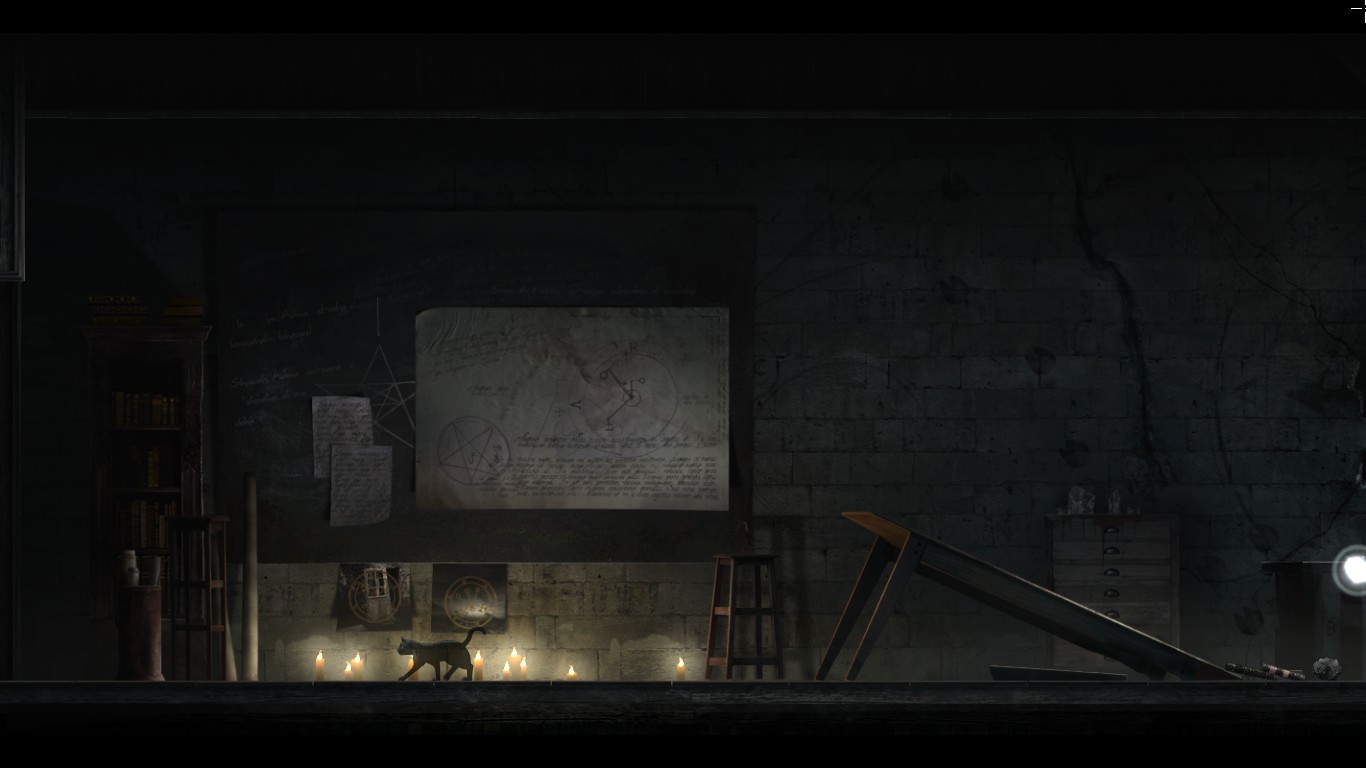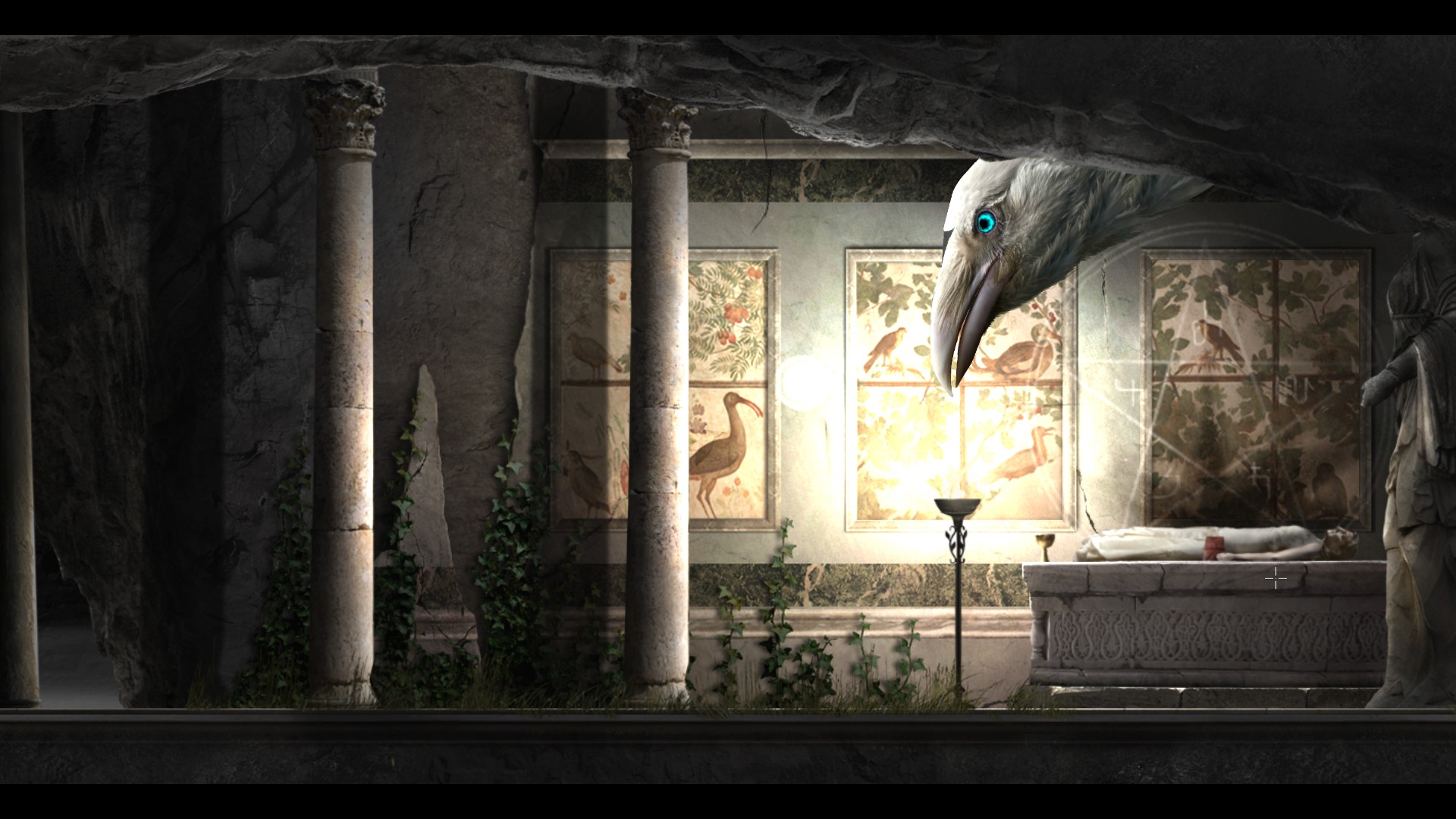Search
[{{{type}}}] {{{reason}}}
{{/data.error.root_cause}}{{{_source.title}}} {{#_source.showPrice}} {{{_source.displayPrice}}} {{/_source.showPrice}}
{{#_source.showLink}} {{/_source.showLink}} {{#_source.showDate}}{{{_source.displayDate}}}
{{/_source.showDate}}{{{_source.description}}}
{{#_source.additionalInfo}}{{#_source.additionalFields}} {{#title}} {{{label}}}: {{{title}}} {{/title}} {{/_source.additionalFields}}
{{/_source.additionalInfo}}- Details
- Category: Computer
- By J. Todd Cumming
- Hits: 5642
Goetia (Mac)

Goetia
Developed by: Sushee
Published by: Square Enix
Released: April 14, 2016
Available on: Windows, macOS, SteamOS/Linux
Genre: Adventure
ESRB rating: T (violent references, partial nudity)
Number of players: 1
Price: $14.99
(Humble Store Link)
Young Abigail Blackwood passed away in 1902. She never expected to rise from her grave 40 years later and return to her childhood home, Blackwood Manor. Now as a ghost, she finds the place largely devoid of life, but there is a malevolent presence within the dilapidated mansion. Driven by curiosity, she must discover what happened to everyone and uncover a sinister mystery that has been haunting the region for more than four decades.
That mysterious synopsis is what drives Goetia, a point-and-click adventure game from Sushee. This game drips with atmosphere, from the gloomy backgrounds to the haunting music and spooky sound effects. You play Abigail, represented by an ephemeral, luminescent orb that follows your mouse cursor around the scenes. Left clicking on an object will bring up a menu allowing you to look at objects, try to manipulate them, or possess them. Other keyboard buttons allow you to bring up your journal, look at the documents you've seen so far, or highlight objects you can interact with. The interface is minimal and the controls sharp, allowing you to get drawn into the mystery without getting distracted by the minutiae of game design.
As you explore the mansion and the environment around it, you are able to learn more about the mansion, the nearby village, the forest behind the mansion, and more. You'll unlock clues about what happened to your family and what they were involved in, and Abigail's role in the events as well. One of the elements that deviates Goetia from other adventure games is inventory management; since you're a ghostly orb, you don't have a backpack or pockets to keep the items you come across. Instead, you can push your essence into specific objects in order to "possess" them for as long as you need. The object will float around and can interact with some parts of the world in order to solve various challenges. While Abigail can float through floors and walls unless they're sealed (more on that later), the object can't pass through solid objects. Sometimes the challenge can simply be to get an item from one place to another while trying to figure out how to get around a locked door.

Strong Points: Excellent graphics, sound and music; challenging puzzles; intriguing story
Weak Points: Some puzzles have confusing or convoluted solutions
Moral Warnings: Nudity; language; undead references; significant occult presence throughout the game
There also are a variety of puzzles to solve as well. Some of these are familiar challenges, like trying to rearrange a torn note into its original form so you can read it. Others provide more of a challenge, including trying to match sheet music to a musical score. Some of the puzzles may prove to be too challenging, though – even to the point of making very little sense. I admit that I had to look at the solution to a few of the puzzles, and even with the answers I couldn't figure out the puzzle. This is something that even the author of the walkthrough admitted. Although all the dialogue is text based, you'll need to have a good set of speakers or headphones to solve some of the challenges, since some of them are based on audio clues, including a couple of musical challenges.
You'll want to listen to the game, anyway. The eerie sound effects and music do an excellent job of drawing you into the environment. You also can manipulate a slider to darken the game, to further add to the spooky atmosphere (I kept mine brighter since it makes the screenshots clearer to see. It wasn't because I was scared... honest!). This game is gorgeous in its art style – although desolate and decrepit, the details in the artwork are amazing. Even the "Silver Labyrinth," which is an area where you pass through old photographs, look like you are traveling through scratched and speckled black and white photos. The game may be classified as "horror," but the environment is more unsettling than terrifying. There aren't any jump scares, and since you're a ghost, you really don't have to worry about anything killing you. In fact, once you get to a certain point in the game, you can freely explore and solve the puzzles in whatever order you'd like. Backtracking is required, as you'll unlock and uncover different areas, and enjoy the new discoveries in the process. The only plot hole I could find is trying to determine who has been paying for the electric lights in the manor and nearby Oakmarsh long after both locales have been deserted!

Higher is better
(10/10 is perfect)
Game Score - 88%
Gameplay - 16/20
Graphics - 9/10
Sound - 9/10
Stability - 5/5
Controls - 5/5
Morality Score - 57%
Violence - 5/10
Language - 7/10
Sexual Content - 5/10
Occult/Supernatural - 0/10
Cultural/Moral/Ethical - 10/10
+3 for demonstrating the consequences of messing around with occult practices.
As beautiful as the game is, though, there are some significant moral concerns which make me hesitant to recommend this game. Of course there are the undead elements, since you are playing as a ghost. More alarmingly, though, is the presence of the creatures inhabiting the house. It seems that your father was a professor of "demonology," and for some reason, five demons are trapped within the mansion. These aren't made-up demons, either – the ones that Sushee selected have historical backgrounds dating as far back as the 15th century. I recognized the name of the first one you encounter – Malphas – but a Google search of the other names revealed that some of these demons have been theorized for a few centuries, including the sigils and symbols that appear in Goetia. In fact, the name of the game itself refers to a work called the "Ars Goetia," which appeared in the 17th century and focused on the identity of demons... and how to summon them. Needless to say, this game is steeped in occult references, to the point where it could be considered a primer in demonology itself. A strong spiritual center is highly advised if you're considering playing this game, and I wouldn't recommend it to children because of its potential influences. Almost as a minor note, there are also language issues, as "Hell" is mentioned several times – for the most part, as a location, rather than a curse word. In one of the journal entries, one of the demons appears as a nude male, and another is composed of three creatures, including a topless woman. A corpse does appear in one location, as well as skulls in another. Finally, one of the puzzles involves the use of a ouija board.
Goetia is a beautiful game with a powerful story that compels you to learn more. The atmosphere is immersive and the length of the story, combined with the entertainment of the puzzles, makes this one of the more entertaining and intriguing adventure games that I've played. But the significant amount of occult symbolism, combined with how subtly it is presented, should give anyone reason to hesitate. Be firm in your faith if you wish to explore the haunted ruins of Blackwood Manor.






